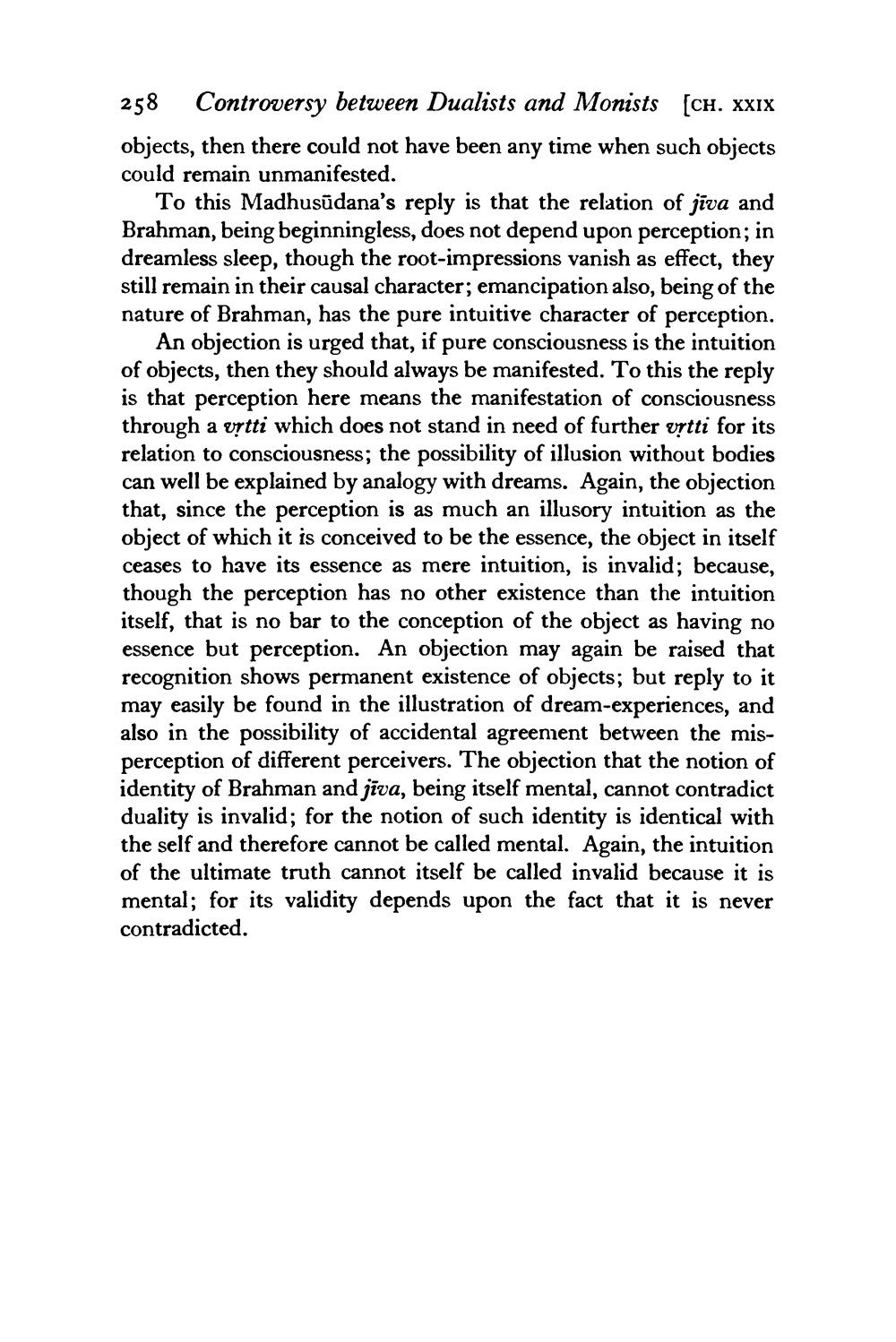________________
258 Controversy between Dualists and Monists [Ch. xxix objects, then there could not have been any time when such objects could remain unmanifested.
To this Madhusūdana's reply is that the relation of jīva and Brahman, being beginningless, does not depend upon perception; in dreamless sleep, though the root-impressions vanish as effect, they still remain in their causal character; emancipation also, being of the nature of Brahman, has the pure intuitive character of perception.
An objection is urged that, if pure consciousness is the intuition of objects, then they should always be manifested. To this the reply is that perception here means the manifestation of consciousness through a vrtti which does not stand in need of further ortti for its relation to consciousness; the possibility of illusion without bodies can well be explained by analogy with dreams. Again, the objection that, since the perception is as much an illusory intuition as the object of which it is conceived to be the essence, the object in itself ceases to have its essence as mere intuition, is invalid; because, though the perception has no other existence than the intuition itself, that is no bar to the conception of the object as having no essence but perception. An objection may again be raised that recognition shows permanent existence of objects; but reply to it may easily be found in the illustration of dream-experiences, and also in the possibility of accidental agreement between the misperception of different perceivers. The objection that the notion of identity of Brahman and jīva, being itself mental, cannot contradict duality is invalid; for the notion of such identity is identical with the self and therefore cannot be called mental. Again, the intuition of the ultimate truth cannot itself be called invalid because it is mental; for its validity depends upon the fact that it is never contradicted.




